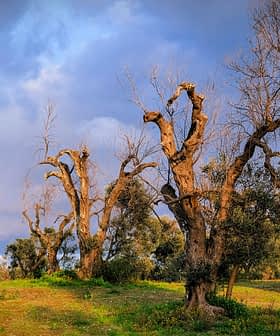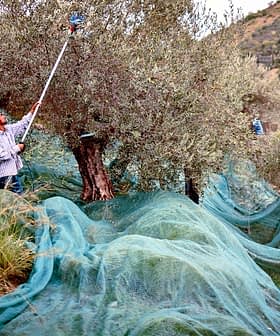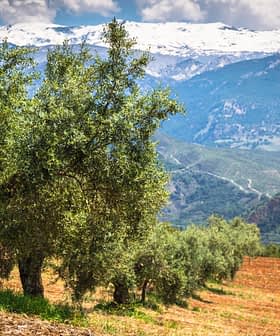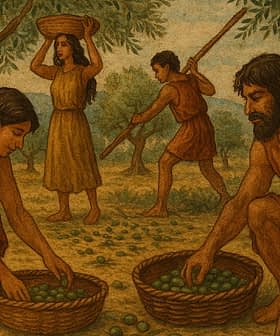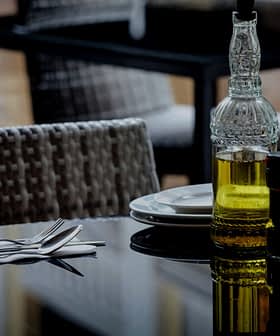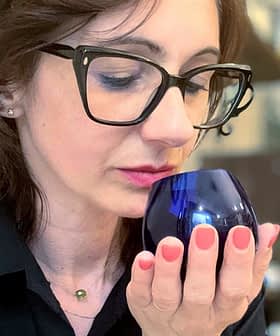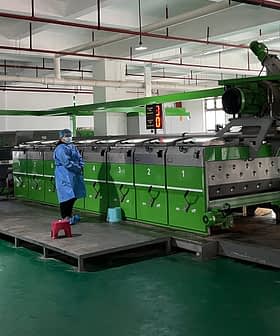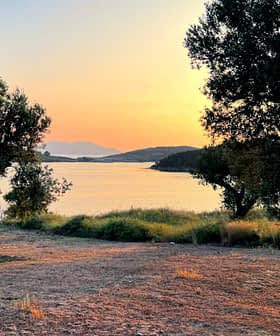Pruneti: Quality Craftsmen in the Heart of Chianti
In a rural stretch of Tuscany, dominated by vineyards and olive trees, Gionni and Paolo Pruneti combine centuries of agricultural know-how with the latest milling technology to produce extra virgin olive oils on the land of their ancestors.
Gionni Pruneti, who started working in the olive mill at a young age, now manages a successful olive oil business that has won multiple awards. Pruneti’s family has a long history in agriculture, focusing on olive oil and irises, with their organic and sustainable practices leading to high-quality products and a unique tasting gallery experience in Chianti.
Entering into a mill equipped with the latest technology, there is an old black and white photograph of a group of people in their work clothes. Among the figures in the picture are two young children with sweet but sharp eyes.
Gionni Pruneti is one of these children and has come a long way since the photo was taken. Pruneti officially started managing the olive press at the age of 18, but started working with the machinery in the mill from a much earlier age.
“I have a video of me crushing olives late at night when I was in middle school,” said the producer of the monocultivar Pruneti Frantoio, which has won three Gold Awards and one Silver at the past four editions of the NYIOOC World Olive Oil Competition. “My brother, Paolo, and I learned everything from my grandfather, who involved us in this activity, encouraging us to respect our commitments and act responsibly toward co-workers and customers.”
We choose these artworks to convey the idea that our products stem from know-how, that their quality originates from the craft we have in our hands.
Driving along the roads of Chianti, a rural region of Tuscany, in the direction of the company land provides stunning views out over the countless olive trees and vines.
“A special feature of this area is the cultivation of irises,” Pruneti said.
The irises used to grow naturally on the land and only began to be cultivated after their medicinal values were noticed by local friars. Later on, Caterina de Medici introduced irises to France and they became a primary ingredient in the perfume industry. Since then, the use of irises has spread across the world and the flowering plant is now used in the phytotherapy and cosmetology industries as well.
See Also:Producer Profiles“My family has worked in agriculture for generations,” Pruneti said. “They cultivated several horticultural products and used to sell them at the market in Florence, until the mid-1800s, when they focused on these two local products: olive oil and irises.”
Their olive groves are characterized by the presence of the plant, which blooms during the spring and provides a touch of pale purple-violet to the orchards.
“They must remain in the ground for four years, then we collect and process the rhizomes, which are ready after four more years,” Pruneti said. “It takes eight years for the rhizomes to be ready. Patience is important to produce quality.”
The organic and sustainable management of the land favors a rich biodiversity. All sorts of plants are left growing undisturbed as cover crop and along the borders of the orchard.
“Over the years, we increased the production and now manage 26,000 olive trees scattered over 85 hectares (210 acres),” Pruneti said. “In addition, I continued to upgrade our mill, as the machinery is my passion, and today it has the latest technologies and all the requirements to work at the highest degree of accuracy.”
Pruneti added that when he and his brother bottled their first monovarietal oils, they were not well known by the local consumers.
“In 2001, our Leccino was regarded with mistrust,” he said. “I started to produce oil from a single variety basically for two reasons. First, with the traditional system, I had problems when I had to crush certain varieties together, for example, Leccino that has a soft pulp with Ghiacciola, which is harder.”
The modern mill had been set up just a year prior to Pruneti’s successful experiment with monovarietal oils.
“I have to say that it was not easy to discard millstones and presses. I mean, it is a matter of the heart,” Pruneti said, adding that the second reason for looking beyond the blends relates to his love for good food.

“I was trying to make a lighter extra virgin olive oil for fish dishes,” he said. “Now, it is taken for granted, but at the time, it was groundbreaking.”
“I owe the improvement of the first oils I produced to Nanni Montorselli, a taster and technician who was responsible for the Chianti Classico PDO,” Pruneti continued. “His heartfelt criticism tore me apart, but it gave me the push I needed to reach the highest quality levels. I think that if you want to produce quality, you must always make self-criticism and question yourself, in addition to paying full attention to all the details.”
Pruneti described their activity as “artisanal,” which is also the concept behind the images on the labels of their monovarietals.
“We choose these artworks – paintings from the workshops of Tuscan artists, who were craftsmen – to convey the idea that our products stem from know-how, that their quality originates from the craft we have in our hands,” he said.
Picking up a handful of earth at the foot of the trees, he demonstrated how this part of the farmland is stony, allowing for good drainage. On the other side, the soil is rich in clay. Different terrains allow Pruneti to enrich his olive oil production by cultivating many different varieties: Frantoio, Moraiolo, Leccino, Correggiolo, Pendolino, Leccio del Corno, Maurino, Leccione, Rossellino and Cipressino, among others.
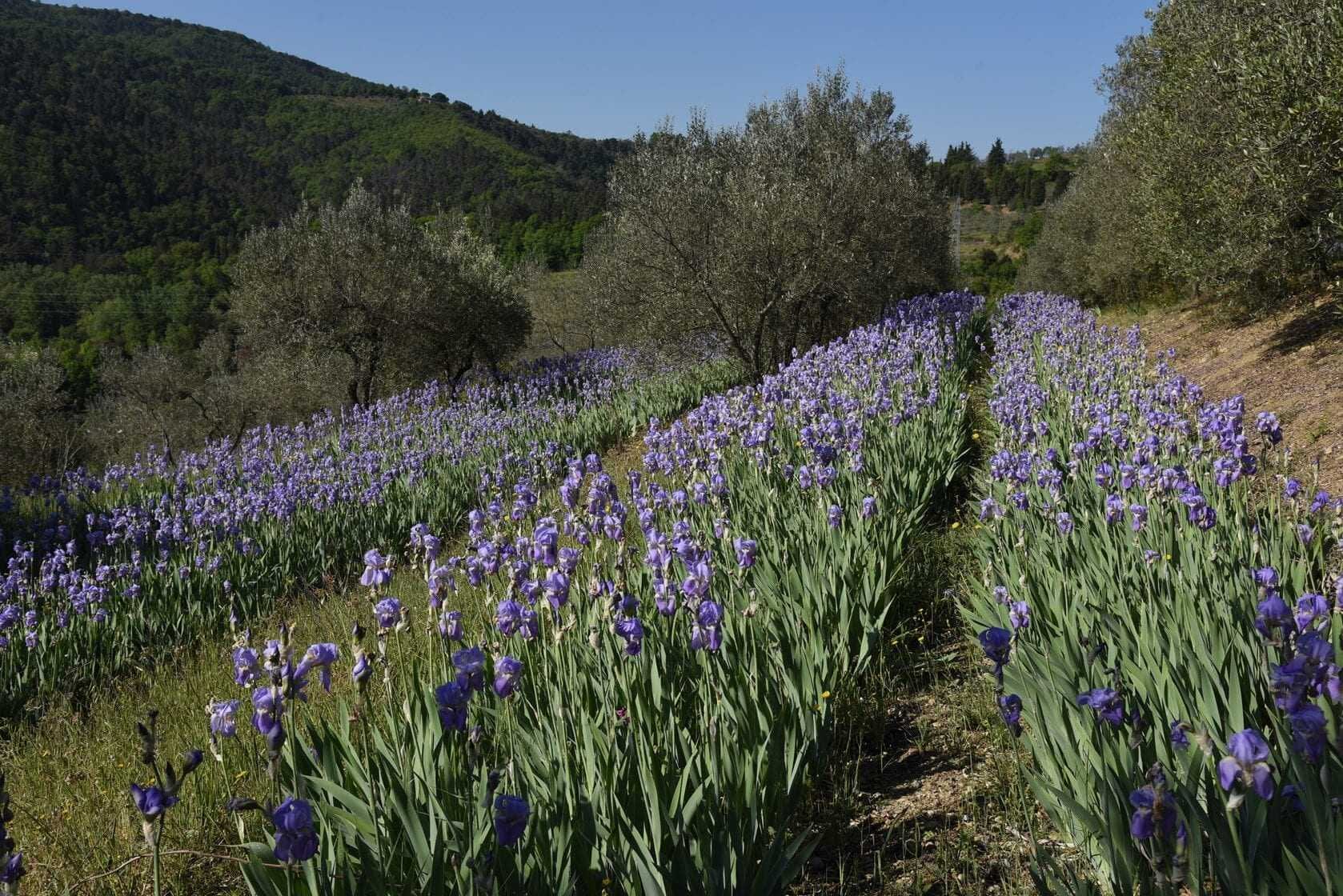
Irises in bloom among the olive trees
“Every year, I put aside half a dozen drums of a single variety produced in different plots,” he said. “We taste them, comparing and exploring the different outcomes. These differ based on elements such as soil and exposure as well as the milling process, which include the possibility of using three different crushers, and several other factors including the temperature… Dealing properly with all these factors contributes to the production of the extra virgin olive oil you want to obtain.”
Pruneti’s goal is to manage the whole supply chain in order to guarantee every stage of the production process.
“My brother and I achieved this, knowing that, from a business point of view, it is very risky, since each production phase comes with its own set of risks,” he said. “However, this is a plus that contributes to the quality and offers additional guarantees for the consumer.”
With the opening of the Pruneti Extra Gallery, the goal to complete the production cycle was accomplished.
In the town of Greve, in Chianti, there is a place designed to lead professionals and enthusiasts on a journey through quality.
Here, just like in a gallery of contemporary art, the Pruneti extra virgin olive oils and the products of the farm – wine, irises and saffron – are enhanced by a combination of pairings, each of which is like a unique picture composed of colors, scents, and flavors that narrate the nuances of this beautiful territory.
The extra virgin olive oils are the core ingredients of tasting menus with combinations designed to find the perfect pairing in every season. Vegetables, cheeses, soups, meats, biscuits, ice cream and cocktails are all paired with the perfect extra virgin olive oil in the picturesque setting.
The gallery, which provides visitors with an immersive experience into the creation of the farm’s various products, is a work of art and sits at the center of a wide, airy space made up of clean, modern but warm lines. A window on the ancient brick pavement displays the old tools used by Pruneti’s ancestors on the farm as if to show that in this place strong roots have given life to healthy fruits.
“This is an extra gallery, unique in its kind,” Pruneti said. “We want to express the excellence of our products through an enthralling sensory experience than can be unforgettable.”


